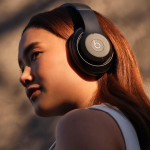The state of New York voted this week to pause any implementation of facial recognition technology in schools for two years. The moratorium, approved by the New York Assembly and Senate Wednesday, comes after an upstate school district adopted the technology earlier this year, prompting a lawsuit in June from the New York Civil Liberties Union on behalf of parents. If New York Governor Andrew Cuomo signs the legislation into law, the moratorium would freeze the use of any facial recognition school systems in the state until July 1, 2022.
Earlier this week, a school district in Topeka, Kansas announced that it would employ facial recognition technology at a temperature check kiosk for staff as part of its plan to reopen schools. Unfortunately, such a system would not be capable of preventing asymptomatic spread of the virus—one of COVID-19’s most challenging features.
With the pandemic still ravaging the U.S., the issue of school reopening has become deeply politicized. In a briefing earlier this month, White House press secretary Kayleigh McEnany argued that “science should not stand in the way” of reopenings.
“Facial recognition companies will use any angle they can to market their product to schools—but this one is just absolutely ridiculous,” Fight for the Future Campaign Director Caitlin Seeley George said of the technology’s proposed school implementation in Kansas. “Facial recognition will not stop the spread of COVID-19, and schools shouldn’t buy into this hokum.”
New York’s moratorium was viewed as a major victory by digital privacy advocates, who call into question not only the surveillance technology’s potential concerns for civil liberties but also the tech’s ability to accomplish its stated goals at all. The efficacy of such technology has come under fire repeatedly in studies demonstrating high false positive rates and racial biases coded into the systems themselves.
“We’ve said for years that facial recognition and other biometric surveillance technologies have no place in schools, and this is a monumental leap forward to protect students from this kind of invasive surveillance,” NYCLU Education Policy Center Deputy Director Stefanie Coyle said.
“Schools should be an environment where children can learn and grow, and the presence of a flawed and racially-biased system constantly monitoring students makes that impossible.”
Powered by WPeMatico






